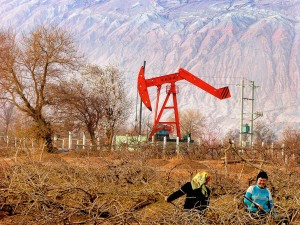The production cuts deal lead by OPEC and Russia have received a great deal of publicity lately, but in reality it is the Chinese economy that could make or break the oil markets this year. While these supply side players have promised to do “whatever it takes” to support the price of oil, in large part the rise or fall of the world’s most traded commodity lies with their largest customer.
While the US is the world’s largest consumer of oil and much has been made about the production capacity of US shale, far less attention has been paid to the role which China plays oil markets. The IEA expects Chinese demand for oil to increase by 400,000 barrels per day this year to 12.3 million bpd. This is over 30% of the total increase of 1.3 million bpd expected globally and if those estimates turn out to be overly optimistic all bets are off for the projected demand scenarios.
This scenario should be especially troubling to oil bulls given that on May 24, Moody’s Investor Service downgraded China’s credit rating from Aa3 to A1. This marks the first time China’s credit rating has been downgraded in more than a quarter of a century. This downgrade was largely based on the fear of a massive increase in government debt brought on by increased spending intended to stimulate economic growth.
Yet despite this credit downgrade there is an upside for the oil market. If China’s economy doesn’t falter they will likely need to import more oil sooner rather than later. Domestic oil production in China has been falling in recent years. This is due to a combination of aging oil fields with depleting stocks and the lack of investment in infrastructure in recent years. If Chinese oil production falls more than expected this year and Chinese demand rises more than expected it will supercharge the effect of the OPEC cuts.
In the end the future of the oil markets may not be with OPEC, Russia or even the United States. The fate of the oil markets and the fate of the Chinese economy are tied together, a fact oil investors need to weigh carefully before deciding whether to join the bulls or the bears.

